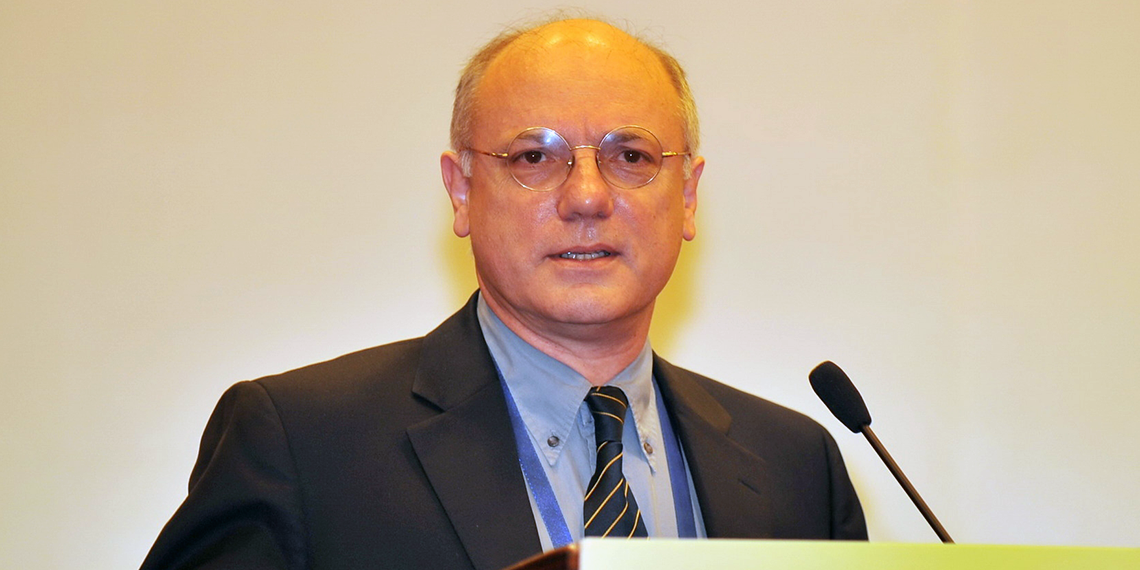On the 40th INESC anniversary, if there is anything worth highlighting, it is the greatness of the Institute’s original core vision; and if there is a defining word, it is audacity.
The national INESC (which included INESC in Porto) was established in 1985, in the shadow of a sensed threat: the integration of Portugal into a union in Europe, a process that risked being utterly overwhelming, if nothing would be done. It was the terrifying realisation of the drama of the pygmy among giants.
The national INESC had an early focus on growing: on becoming bigger, of a higher scale. Pulverised and anaesthetised by petty and futile academic rivalries, Lilliput would easily be devoured by Brobdingnag.
With the establishment of INESC Porto in 1988, the embryo of INESC TEC, the drama was revisited, rendered as the return to regional irrelevance. However, the original INESC spirit prevailed, reinventing itself: after all, being great means including and adopting diversity, and rejecting particularism. This agenda had two key components, to be dissected.
From an institutional point of view, INESC TEC opened up to the Polytechnic of Porto and to the Universities of Minho and Trás-os-Montes and Alto Douro. Institutions that one could traditionally perceive as rivals began cooperating, rather than competing. In the demeanours of humanity, it seems that the closer neighbours are, the harder it becomes to understand one another. In this sense, bringing this diversity together was quite an enterprise – actually, an example to follow.
As for the model, INESC TEC materialised the original idea, in two senses: it preserved and reinforced a knowledge production-to-value chain, integrating different talents – from fundamental research to business application – and promoted a coherent multiplicity of skills, from physics to industrial management, with electrical and electronic engineering and computer science as a cohesive force. Diversity, in all its glory.
All of this led to a multi-institutional cosmos of more than one thousand people, and an annual budget undreamed-of during infancy. All of this is true – but it is not the most important aspect of truth worth noticing. Greatness through the lens of numbers is not the real Greatness, it is just evidence of something deeper. The greatness of INESC TEC lies in the culture it managed to establish: thoroughness, all-inclusive cooperation, hard work, respect for obligations, passion for science, enthusiasm for cooperating with the industry and an ambition to transform Portugal.
The path to greatness relied on dreams and key agents – and ambition. Make no mistake: dreams of greatness are always difficult to assimilate at first, since they tend to be disruptive. However, and due to enlightened protagonists, said disruptions were presumed credible, thus mobilising enough people to become unstoppable.
Today’s risks? Self-righteousness, quickly drifting into arrogance. Conformism, easily converted into a passive approval of the status quo. Refusal to dream, painfully paving the way for a return to a lesser past of experiences and behaviours.
In this sense, refusing a growth agenda will be a colossal mistake. The danger of finding ourselves settled and comfortable on the plateau of the logistical curve will be threatening, if our science management relies on replacing audacity with meticulousness, and boldness with administrative obsession. There is no praiseworthy poetry in pen-pushing.
INESC TEC needs flagship ideas, now more than ever. Before dreaming, one must dare to dream. It is crucial to grow – and to excel. INESC TEC needs to become a federator of major international centres. It must achieve a status of a relevant global reference. It needs to overcome and transcend itself, to be a European institution, not a Portuguese-only organisation. INESC TEC needs to be leader of initiatives, not a follower: it must have a disruptive agenda that generates and leads to new realities, in healthcare, ocean, space, climate change and cyber-security – rather than acting as the technological appendage to third party’s ideas.
Moreover, it needs to reinvent itself. For I am the size of what I see, not the height others see in me, Fernando Pessoa wrote, and quite lucidly.
Vladimiro Miranda, Associate Director




 News, current topics, curiosities and so much more about INESC TEC and its community!
News, current topics, curiosities and so much more about INESC TEC and its community!